Spanish News Today Editors Roundup Weekly Bulletin Sept 17
CLICK HERE FOR THE FEATURE ARTICLES "Scientists confirm Spain has just had its hottest summer ever recorded" and "Calls to scrap bullfighting intensify after man dies at Murcia Fair"
There’s nothing quite like living in Spain, with its nice weather, relaxed pace of life and (traditionally, at least!) affordable property prices and cost of living. But there are still plenty of things to get riled up about as an expat in Spain.
Such as the weather, again. A bit of sun is nice, but this summer was frankly just too hot. And the scientists agree, having confirmed what everyone already suspected anyway – that climate change has made this officially the warmest summer ever recorded in the country – but what’s especially tragic are the fatal consequences of this.
And then there are the strange, inexplicable or even nasty customs the Spanish have, not least of which is bullfighting. While this bloodthirsty sport still continues to this day in most cities in Spain to some degree, there are reasons to be hopeful that the tide against bull sports is finally starting to turn, as we’ll see inside...
Hot enough for ya?
Well, it’s official:
the summer of 2022 was indeed the warmest in the history of Spain, at least since meteorologists began keeping records of such things in 1961. For anyone living or holidaying here, the news will come as little surprise, since the season started unusually early with a June heatwave and the thermometers hardly budged from the mid-30s for three months.
The largest discrepancies were recorded in areas like the Valencian Community and large parts of Andalucía, where the mercury registered around 3ºC above normal, and as much as 4ºC in certain places.
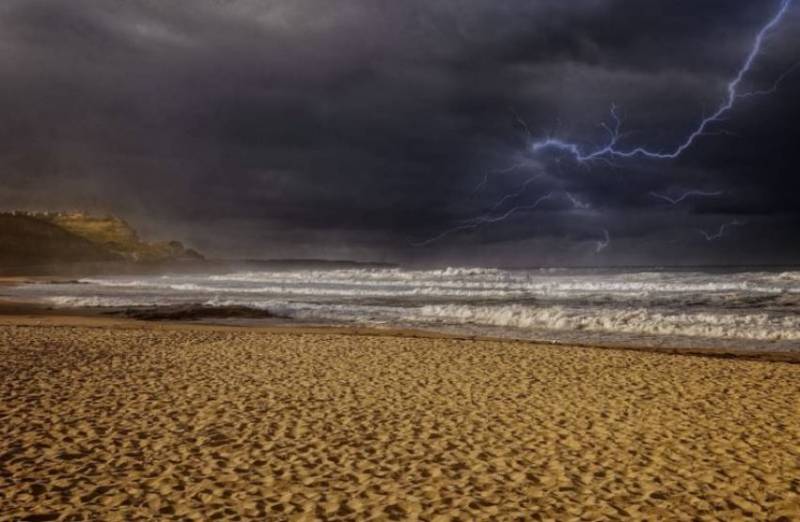
It hasn’t been all sunshine though, and violent storms have raged in the middle of the heatwaves. One such episode took a tragic turn in Mallorca on September 8, when
two tourists were struck by lightning Cala Mesquida beach as they scrambled to escape a sudden downpour.
The electrical storm came out of nowhere as holidaymakers were enjoying a day at the seaside. According to official reports, one of the tourists was struck by lightning when he grabbed the metal pole of his parasol to pull it down. He died instantly.
The second victim, believed to be unknown to the first but lying nearby, reportedly began convulsing when the lightning struck; emergency responders attended to the man immediately but he was pronounced dead 40 minutes later.
The deceased are a Swiss man aged 65 and a German tourist, aged 51.
Taking the bull by the horns
The Feria de Murcia 2022 – the Murcia fair which has been going on in the Region’s capital city for the last couple of weeks – has brought disaster and controversy this week, just as the fiesta was winding up.
While most people go to the fair to enjoy the huertos for their typical Murcian food and drinks, there is a small subsection of participants who still attend the traditional bullfights held in the La Condomina bull arena, which still take place every year despite rising opposition to this blood sport.
On Monday’s bullfight, a certain bull was being led out of the bullring because it had an injured leg and wasn’t fit to fight. Instead, it was to be unceremoniously slaughtered, so organisers called the ‘butcher’, a specific role in the world of bullfighting who specialises in finishing the animals off.
They thought the bull was dead already, or at least on the verge of death and unable to get up, much less cause anyone any harm. But when the butcher approached to deliver the decisive blow, the 472kg animal, named ‘Limpiador’ (Cleaner), stood up and abruptly gored the man several times with its horns.
The bull was killed, of course, and the man rushed to hospital, where
he died shortly afterwards. There are those who say he deserved it, and have celebrated his death. Regardless of what the man did for a living and the violent practices he championed encouraging wholly unnecessary cruelty to animals, he was a person with a family and a life, and it’s undoubtedly a tragedy that he had to die.
A one-minute silence was held for him the next day in the bullring, before his colleagues promptly went on to resume their bullfighting activities and continue the bloodthirsty spectacle.
One brave man, Dutchman Peter Jansen, decided it was “disrespectful… to the family of the deceased to choose to continue with the bullfighting festival the day after his death” and so he
jumped over the fence and into the bullring, bare-chested, holding up a sign that read “Violence against animals is not culture” and with the words “A minute’s silence for the murdered bulls” scrawled across his torso.

Peter is the founder of the Vegan Strike Group, which holds similar protests at bullfights and dolphin shows around the world to campaign for the end of cruelty to animals as entertainment, and so is no stranger to the treatment he received next.
He was forcibly ‘escorted’ from the bullring by police and workers at the arena, and alleges he was kicked and beaten on the way out. (Hard to believe someone involved in the flippant torture and sacrifice of innocent animals would be able to kick a man when he’s down!)
For instance, Tordesillas, where the controversial El Toro de la Vega bull festival was replaced this week by two bull runs where it was pronounced that
the animals must not be harmed. Normally, the tradition in the town, in Spain’s northwestern province of Valladolid, is to chase the bulls and pierce them with sharp spears until they died.
While this year’s festival is a whole sight better than in previous years because the participants are no longer allowed to stab the bulls, it still remains a fiesta where scared and agitated animals are loosed into an unfamiliar environment and jeered at and tormented by humans, just for fun.
But the fact that even this ancient tradition in the heartland of conservative Spain can be made to change and reconsider its customs from a modern, more humane point of view, shows that there is hope for an eventual ban on bullfighting and bull-related events everywhere.
A right royal mess
It seems that some people really just can’t avoid making the headlines, and even with the eyes of the world turned towards London this week as the nation prepares to bid a final farewell to Queen Elizabeth II on September 18, here in Spain, disgraced former king Juan Carlos I is once again making waves.
This time, it’s because of his
plan to head to the UK for the funeral, a move more than a few in the Spanish government believe is a little indelicate given the current scandal which surrounds him and the British courts.
The former king abdicated the throne in 2014 amid an elephant hunting scandal involving his daughter’s husband. He has been living in Abu Dhabi for the past few years and only returned to Spain briefly this summer.
Controversy seems to follow Juan Carlos though, and he is now awaiting trial in the UK for the alleged harassment of his ex-lover, German businesswoman Corinna zu Sayn-Wittgenstein. The emeritus king initially claimed Sovereign immunity from prosecution, but this was denied by the British High Court.
It was natural enough that an invitation to the funeral be extended to the emeritus king since the British and Spanish Royal families are related, but many feel it would be more prudent to allow the current King Felipe VI and his wife Queen Letizia (who is, incidentally, celebrating her 50th birthday this week) represent the monarchy in Spain.
If Juan Carlos goes against the advice of the Spanish government, which he seems hellbent on doing, the Queen’s funeral will be his first royal event since his abdication.
The passing of Her Majesty has caused serious upheaval in the UK and many changes are afoot as King Charles III prepares to fill her considerable shoes.
On top of this though, countless official documents will have to be altered up and down the country to represent the new monarch.
One of these is the UK passport, which has already gone through a
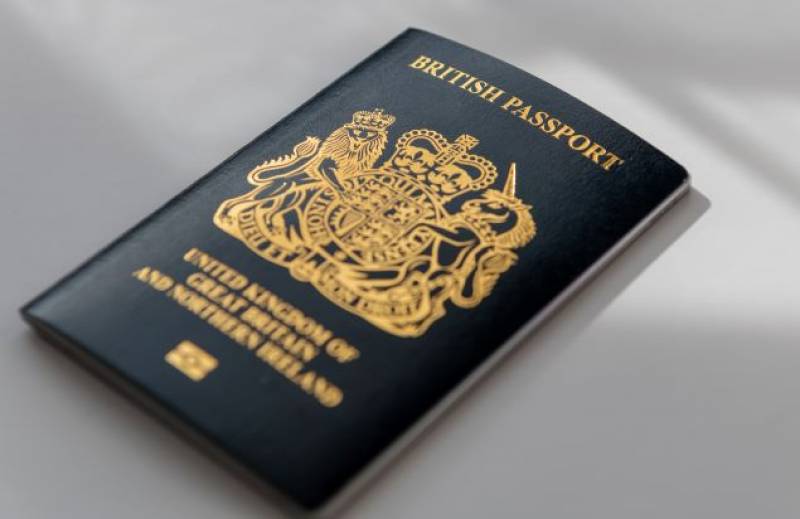
transformation following Brexit, when the cover was switched from burgundy, the colour favoured by most EU countries, to blue.
At the moment, British passports contain phrases like “Her Britannic Majesty’s Secretary of State” and over time, all of the pronouns will need to be changed from “her” to “his” The same is true of New Zealand, where the travel document also contains phrases like in “the Name of Her Majesty the Queen”.
The good news is that UK citizens don’t actually have to do anything for now, as the change will simply be applied when current passports expire after 10 years and are up for renewal, and the current passports will remain valid until then.
Murcia
In just one year, Alcaraz, who is from the pueblo of El Palmar in central Murcia, has gone from being number 100 in the world to number 1, becoming the fourth Spaniard to do so after Rafa Nadal, Juan Carlos Ferrero and Carlos Moyá, all of whom have congratulated the Murcia teen and welcomed him as Spain’s new ambassador on the world tennis stage.
In his home town, about two thousand people followed the final of the 2022 US Open live from a giant screen – 1,000 of them on chairs put out by the Ayuntamiento and a further 1,000 happy to stand or who had brought their own chairs from home just to see their hero play.
There was even a DJ providing music until the match began, and the Mayor of El Palmar, Verónica Sánchez, and the Mayor of Murcia City, José Antonio Serrano, were both in attendance. There’s no rest for the wicked, though, and after his record-breaking feat, Carlos hopped straight on a plane to Valencia to play alongside the Spanish team in the Davis Cup.
What has gone underreported, however, is a saga that’s been dragging on in Murcia for the last 20 years and serves to highlight to disregard with which the expat community living in the Region is generally viewed.
The residents of Gea y Truyols, mostly pensioners from overseas who relocated to the sunny Spanish development two decades ago, have been living without proper roads, electricity or water because the land was never registered as eligible to build on and the shady builder in charge of the project disappeared in the middle of the construction.
To deal with the lack of basic amenities, some of the expats some have installed solar panels on their home (at their own expense!) to generate electricity, while others siphon water from nearby agricultural land, which isn’t actually fit for human consumption.
They are unable to sell on their illegal homes individually as – because no ‘First Occupational License’ ever materialised to say the houses were built with the proper planning permission – the land can only technically be sold as one single block. And understandably, no one wants to buy it.
The residents who live there have appealed repeatedly to the authorities to finally recognise their homes so they be connected to the water network and electricity grid, but so far nobody will grant their request. As 73-year-old Linda House, who has been fighting this fight since she bought her home with late husband Vic in 2002, the situation is laughable.
“It just seems crazy to me. When you watch British TV, you see the adverts for WaterAid and it just makes us laugh,” she said. “Send your money to Africa because they haven’t got drinking water. Well, we’re in bloody Europe and we haven’t either. It’s ridiculous. It is an absolutely ludicrous situation.”
The Britons are stuck firmly between a rock and a very hard place, with no discernible hope for anything to change any time soon.
Check out our EVENTS DIARY to see everything going on in Murcia:
Spain
According to official reports, Kearns ran a network of men’s fitness groups linked to the extreme right nationalist group ‘Patriotic Alternative’ and now stands accused of spreading hate messages and encouraging acts of violence against non-white people on his Telegram group. The extremist’s lawyer argued that he should be tried in Spain since it is here that the messages originated, but the National Court has ordered his extradition back to the UK.
We couldn’t possibly go a full week without discussing the state of the economy, since money matters are certain to be at the forefront of most people’s minds. The current hot topic is the Spanish vice president’s suggestion that the price of staple food items be limited, and supermarket chain Carrefour was first out of the gate a few days ago with
a new promotional offer: 30 items for 30 euros.
But while the multinational’s discount shopping basket sounds good in theory, is it really offering customers value for money? Well, yes and no. For starters, the promotional basket doesn’t contain any fresh meat, fish or fruit, which would naturally push up the cost significantly from 30 euros, but the usual staples for most families like eggs and milk are also absent.
What the basket does contain is plenty of shelf-stable, own-brand items like a one-litre bottle of sunflower oil, which retails in Carrefour for 2.54 euros, a kilo of sea salt, one kilo of flour and a litre bottle of white wine vinegar.
All very useful products, certainly, but hardly ones that would need replacing on a weekly basis, which suggests that most households won’t really get value for money more than once. There are also cleaning products, personal care items, and plenty of preserves and bread products.
Opinions are divided about the promotion, and it still remains to be seen whether other supermarkets will follow suit with similar offers, or whether the government itself will succeed in forcing them to limit their prices.
Alicante
The line from Alicante to the Spanish capital is also currently the only railway connection to Madrid available to people in the Murcia Region, and the route change comes after the addition of new sections in the south of Madrid that allow the AVE trains to reach Charmartín.
The decision to move the final stop for trains from Murcia and Alicante from Atocha to Chamartín has provoked complaints from passengers, given that Chamartín is located much further from the city centre of Madrid and the journey time into Madrid will now take up to 20 minutes longer.
There are plans to build a ‘through’ tunnel in the future that will allow AVE trains to stop at Atocha and then arrive at Chamartín, but at the moment Atocha has been removed from all normal-speed train journeys and one of the high-speed ones.
Alicante Port has been the base for the Italian-Swiss shipping company MSC Cruises since July, an agreement which is expected to bring more than 40,000 cruise passengers to the city this year. And it’s hoped the port authority can build on this and become a base port for the American and Monaco-based cruise liners.
Cruise passengers each spend an average of 70 euros per day during a brief stopover, a figure that can triple if cruise ships select a port as a starting point because tourists stay overnight or longer before boarding.
In another major boost for the city, Alicante’s
Ciudad de Luz – which has been closed as a film studio for 10 years – is back in action and once again under the full control of the Valencian Government. It was shut down after Pinewood Studios in Britain complained to the European Commission that subsidies from the regional government to help fund the ‘City of Light’ constituted unfair competition, a complaint that was upheld in 2012 and the studios were closed for filming for what should have been 15 years.
The building remained the Generalitat’s property and was adapted as a vaccination centre during the pandemic and a centre for Ukrainian refugees following Russia’s invasion in February. Now, in excellent news for the city and province as a whole, the EC this week lifted the sanction and filming can resume on the more than 200 productions that are set to be filmed at Ciudad de la Luz over the next five years, generating an estimated 850 million euros in the Valencia region. In addition to the financial benefits, the projects will provide around 4,900 permanent jobs and a further 22,000 service contracts.
The much-needed cash was raised through donations from mourners at Denise’s funeral and customers at the couple’s café, Top Nosh, located at Zoco market. Stone Media’s Theatre Group also shared a large chunk of the proceeds from three performances of Enchanted Ella, performed in June by a 30-plus cast.
Andalucía
The weather has been causing havoc in Andalucía in frightening ways. Despite the rainfall across the region this week,
Granada has seen one of its worst wildfires of the whole summer burn through more

than 5,000 hectares of land in the Los Guajares area in the Lecrín Valley. Apocalyptic images have come out of the incident, in a continuation of the heartbreaking forest fires that have plagued the entire country this year in an unprecedented summer of destruction.
Residents around the scene of the Granada fire have been confined to their homes and some of them have voluntarily self-evacuated to safer grounds. While it’s hoped that more rainfall next week will help to quell the flames, the strengthening winds actually make the situation more dangerous, not less. Firefighters continue their brave and seemingly endless battle.
Just as they had to do on Valdelagrana beach in August, tourists had to hurry to gather up their belongings and make a run for higher ground, only turning round to film the bizarre scenes once they were at a safe distance.
Over in Malaga, there’s drenching of a different kind in the works, as Torrox in Malaga province – the municipality in mainland Spain with the highest number of German residents, known to some as ‘Little Germany’ and according to its mayor the place “where German tourism was born in Spain” – prepares for
Oktoberfest.
Oktoberfest was first held on October 12, 1810, in celebration of the marriage of the crown prince of Bavaria, who later became King Louis I, and Princess Therese von Sachsen-Hildburghausen and is now one of the greatest cultural exports from Germany to the world.
From September 22 to 25, the Costa del Sol town of Torrox will host the “best Oktoberfest in its history”, doubling the number of tables and chairs that they usually have and serving “more beer than ever” in expectation of a mass turnout of tourists and locals to the iconic German festival – not only to drink beer but also to eat schnitzels and wurst and enjoy four days of fun live music. Prost!
You may have missed…
- French air traffic controller strike grounds several flights in Spain.
A strike by French air traffic controllers could affect all flights in Europe that usually fly over its airspace, and several passengers have already reported cancellations of flights from Murcia’s Corvera Airport to Dublin this Friday.
- September 16 to 25 Fiestas de Cartagineses y Romanos Cartagena 2022.
The celebration of the Carthaginians and Romans in Cartagena, one of the biggest fiestas in the Region of Murcia, starts this weekend.
- Spanish tow trucks threaten national strike over pay rates.
Vehicle recovery companies are considering “total or partial suspension” of roadside assistance in Spain.
- Creature comforts: rules for keeping pets in rental properties in Spain.
The new Animal Protection Law in Spain has generated some confusion among pet owners over whether tenants may keep cats and dogs in the home or not.
- Corvera airport will have a direct charter flight to Egypt from 2023.
Murcia will have a direct connection with Egypt from January next year, thanks to a new charter flight planned from Corvera airport.
That’s all from us for another week. Don’t forget to sign up for your next lot of bulletins if you’re one of those whose resubscription period is coming to an end.
You’ve still got a chance to sign up at the discounted price of 35% off – you pay just 32 euros for another year’s worth of bulletins like this one every weekend:
Alternatively, you can call Laurence on +34 966 260 896 and he will be happy to take a secure payment online over the phone.
Thanks for reading, and we’ll be back with the last of our first 48 roundups next week.
See you next week!
Got a business in Spain? Advertise with us.
Murciatoday.com and its affiliated Spain Today Online sites can help bring your business to a wider audience – over 350,000 unique readers every month. We’ll provide you with custom-made banner ads, a personalised listing in our Business Directory and special feature articles about your particular business niche.
Don’t limit yourself to the yellow pages. Get online! After Covid, can you afford not to? Contact us today to find out how we can get wider exposure for your business.


 Spanish News Today
Spanish News Today
 Alicante Today
Alicante Today
 Andalucia Today
Andalucia Today

 It hasn’t been all sunshine though, and violent storms have raged in the middle of the heatwaves. One such episode took a tragic turn in Mallorca on September 8, when two tourists were struck by lightning Cala Mesquida beach as they scrambled to escape a sudden downpour.
It hasn’t been all sunshine though, and violent storms have raged in the middle of the heatwaves. One such episode took a tragic turn in Mallorca on September 8, when two tourists were struck by lightning Cala Mesquida beach as they scrambled to escape a sudden downpour.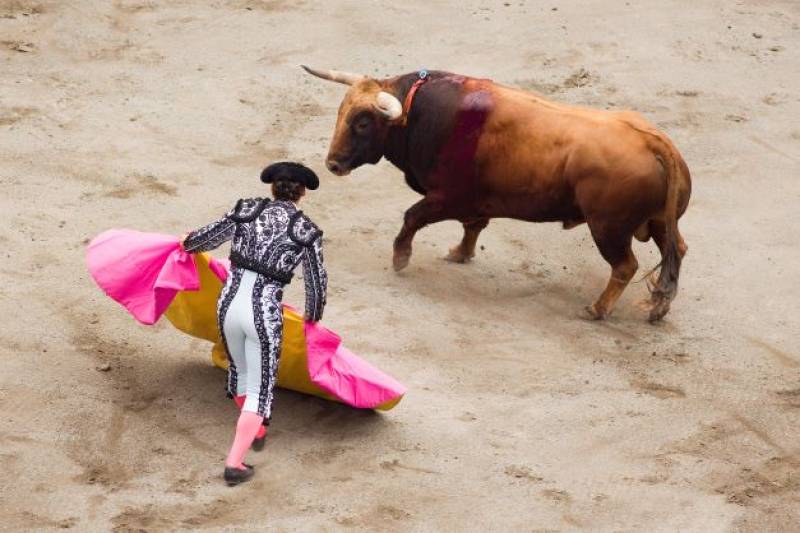
 Peter is the founder of the Vegan Strike Group, which holds similar protests at bullfights and dolphin shows around the world to campaign for the end of cruelty to animals as entertainment, and so is no stranger to the treatment he received next.
Peter is the founder of the Vegan Strike Group, which holds similar protests at bullfights and dolphin shows around the world to campaign for the end of cruelty to animals as entertainment, and so is no stranger to the treatment he received next.
 transformation following Brexit, when the cover was switched from burgundy, the colour favoured by most EU countries, to blue.
transformation following Brexit, when the cover was switched from burgundy, the colour favoured by most EU countries, to blue.
 Liverpudlian Kris Kearns, 37, has lost his battle against extradition from Spain this week and will shortly be returned to the UK, where he faces 15 years behind bars on terror charges.
Liverpudlian Kris Kearns, 37, has lost his battle against extradition from Spain this week and will shortly be returned to the UK, where he faces 15 years behind bars on terror charges.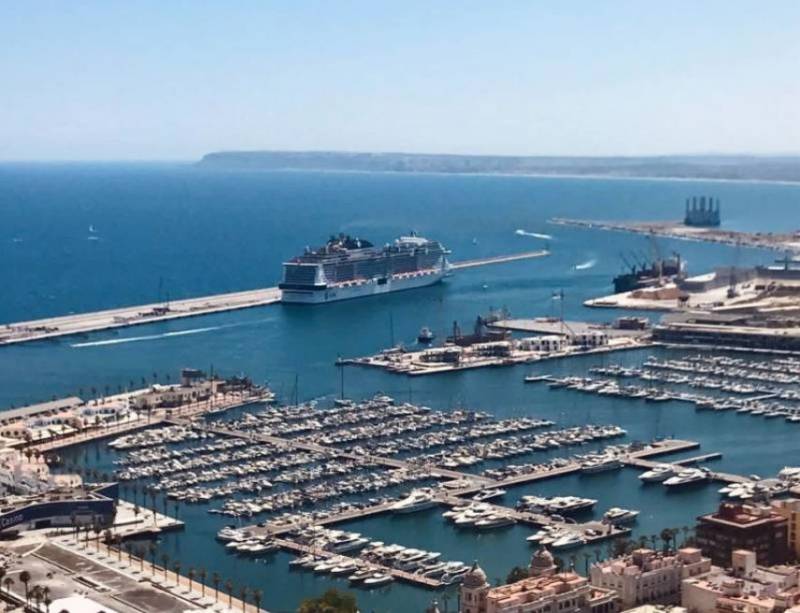
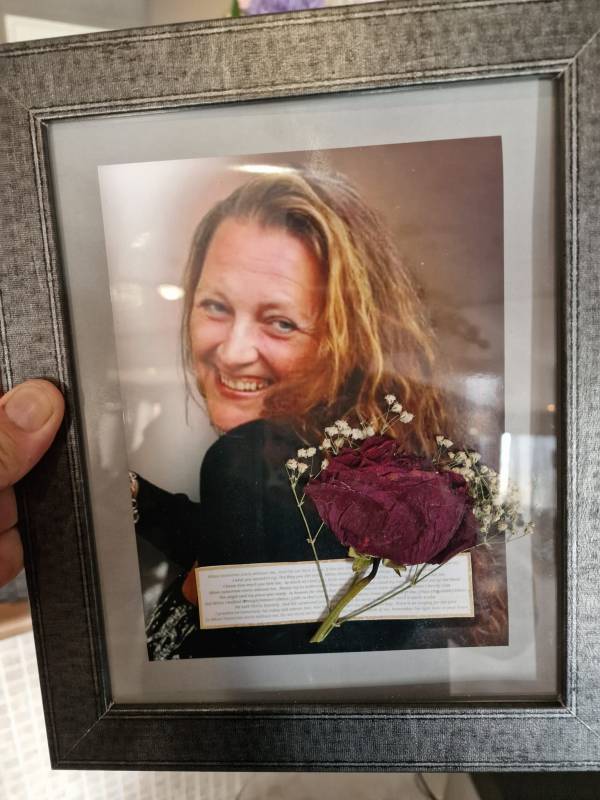 Finally, in Torrevieja, the local branch of the Spanish Association Against Cancer (AECC) has been given a welcome financial boost with a cheque for 2,000 euros donated by local man Neil Couzens, whose wife of 24 years, Denise, tragically died of cancer on May 20. She had been diagnosed with cancer a year earlier.
Finally, in Torrevieja, the local branch of the Spanish Association Against Cancer (AECC) has been given a welcome financial boost with a cheque for 2,000 euros donated by local man Neil Couzens, whose wife of 24 years, Denise, tragically died of cancer on May 20. She had been diagnosed with cancer a year earlier. than 5,000 hectares of land in the Los Guajares area in the Lecrín Valley. Apocalyptic images have come out of the incident, in a continuation of the heartbreaking forest fires that have plagued the entire country this year in an unprecedented summer of destruction.
than 5,000 hectares of land in the Los Guajares area in the Lecrín Valley. Apocalyptic images have come out of the incident, in a continuation of the heartbreaking forest fires that have plagued the entire country this year in an unprecedented summer of destruction.















